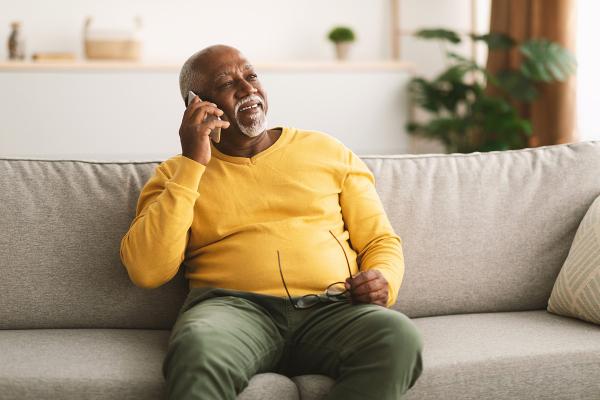
It may be time to get your hearing checked. AARP Hearing Solutions makes it simple. Find a provider today.
It may be tough to catch every word at a restaurant when you wear hearing aids. These tips might make those outings more enjoyable.

Going out to a restaurant may be a fun way to bond with friends or family members. It might also feel like a nice break from cooking at home.
But dining out may be a different experience when you wear hearing aids or have hearing loss. You might be seated in a noisy spot. Or your table mates could be talking over one another.
“For those with hearing challenges, this noise can make it more difficult to follow conversations,” says Ross Cushing, Au.D. He’s a clinical audiologist and CEO of Live Better Hearing + Balance, a family-owned practice. “What might start as a fun night out with friends can quickly feel overwhelming. It can also become filled with misunderstandings, frustration and even embarrassment,” he adds.
That doesn’t mean you should stay home. Connecting with others is important. And bonding over food is something so many of us love to do.
Luckily, there are steps to take to make dining out more enjoyable. Here’s how to get started.

It may be time to get your hearing checked. AARP Hearing Solutions makes it simple. Find a provider today.
That may mean going to smaller, less crowded restaurants. But it could also mean looking at how the space is set up or where you sit. To hear better:
Your goal is to eat somewhere where you’re able to take part in the conversation without straining to listen. And sometimes that requires a little bit of work ahead of time.
There are a few things that make listening to conversations easier, whether you’re with one person or several.
There are hearing aid accessories that may help improve hearing when you’re in a noisy environment. Consider speaking to a hearing care professional if you want to learn more. (AARP® members can request a hearing exam and consultation without a referral through AARP® Hearing Solutions™ provided by UnitedHealthcare Hearing.)
Here are some that Cushing recommends:
So don’t let your hearing issues get in the way of your eating adventures. Pick a strategy or an accessory, grab a friend or family member and go to town.
Ready to request a hearing exam and consultation? AARP Hearing Solutions has a national network of hearing care professionals. Request an appointment.
Sources
Information is for educational purposes only and is not a substitute for the advice of a licensed medical provider. Consult your provider prior to making changes to your lifestyle or health care routine.
AARP Hearing Solutions is available to all AARP members and does not require a health insurance plan from UnitedHealthcare. The AARP hearing program discount cannot be combined with any other discounts, promotions, coupons or hearing aid benefit plans unless noted herein. Products or services that are reimbursable by federal programs including Medicare and Medicaid are not available on a discounted or complimentary basis. AARP commercial member benefits are provided by third parties, not by AARP or its affiliates. Providers pay a royalty fee to AARP for the use of its intellectual property. These fees are used for the general purposes of AARP. Some provider offers are subject to change and may have restrictions. Please contact the provider directly for details. UnitedHealthcare Hearing is provided through UnitedHealthcare, offered to existing members of certain products underwritten or provided by UnitedHealthcare Insurance Company or its affiliates to provide specific hearing aid discounts. This is not an insurance nor managed care product, and fees or charges for services in excess of those defined in program materials are the member's responsibility. UnitedHealthcare does not endorse nor guarantee hearing aid products/services available through the hearing program. This program may not be available in all states or for all group sizes. Components subject to change.
Network size varies by market.
Other hearing exam providers are available in the UnitedHealthcare network.